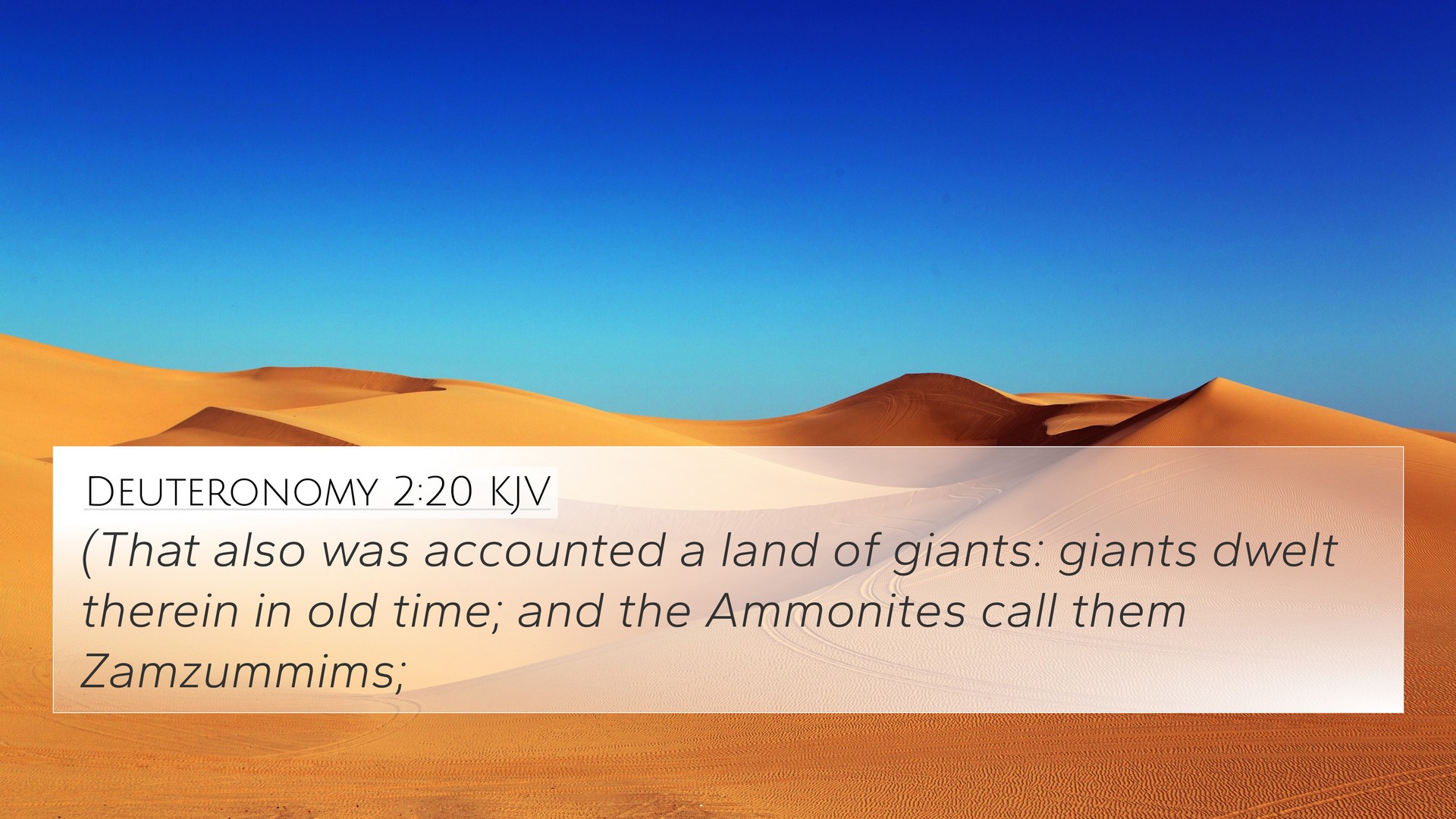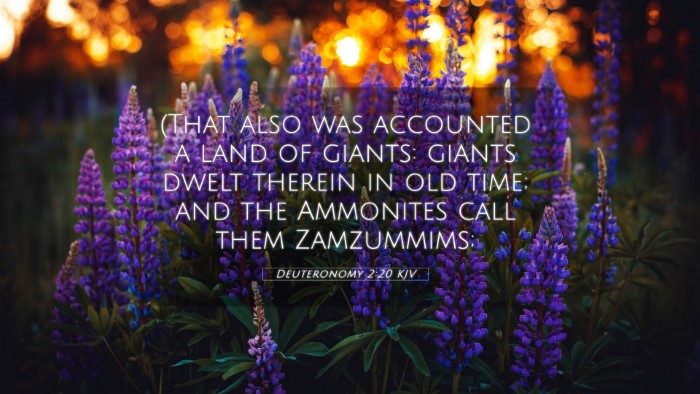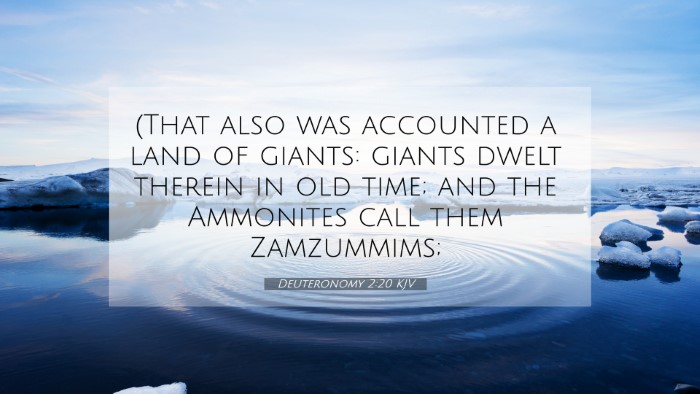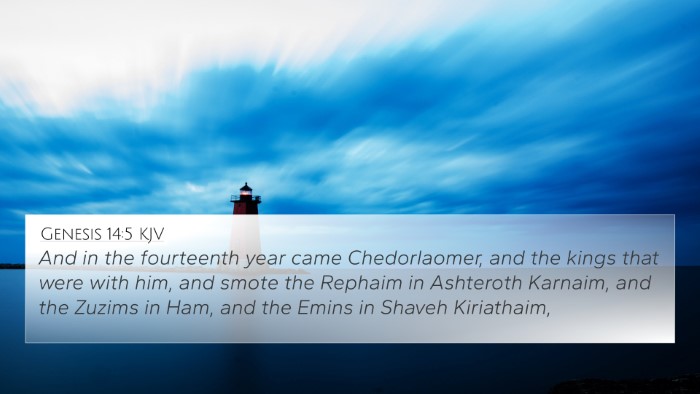Understanding Deuteronomy 2:20
Deuteronomy 2:20 states: “That also was accounted a land of giants: giants dwelt therein in old time; and the Ammonites call them Zamzummims.” This verse refers to the ancient inhabitants of the land that was conquered by the Israelites, specifically the giants known as Zamzummims.
Commentary Summary
Insight from Matthew Henry
Henry emphasizes the significance of giants in biblical history. He explains that giants are not just physical entities but symbolize the formidable enemies that the Israelites had to face. The mention of Zamzummims serves to illustrate the great size and strength of those who opposed Israel. This passage highlights God's sovereignty in granting victory over powerful foes.
Albert Barnes’ Perspective
Barnes points out that the Ammonites’ name for the giants—Zamzummims—indicates a shared cultural memory among the neighboring nations. He argues that this recognition of giants’ existence indicates the remnants of fears pertaining to ancient peoples who were deemed invincible. His analysis reveals an important aspect of how different cultures perceived divine intervention in historical conflicts.
Adam Clarke's Elaboration
Clarke notes that the term "giants" connects back to the Nephilim mentioned in Genesis, hinting at a continuous narrative of supernatural beings existing in the biblical landscape. He also discusses the implications of identifying lands with their historical occupants and how this reveals God's choice of Israel over nations that were mightier.
Cross-References for Deuteronomy 2:20
- Genesis 6:4: Mentions the Nephilim, reinforcing the biblical concept of giants.
- Numbers 13:33: Highlights the Israelite spies’ fear of giants in Canaan.
- Deuteronomy 3:11: References Og, king of Bashan, as a giant.
- Joshua 12:4: Details Og's territory and his stature.
- 1 Chronicles 20:6-8: Discusses battles against giants in later Israelite history.
- Isaiah 26:14: Speaks to the eventual downfall of the mighty.
- 1 Samuel 17: The story of David and Goliath, a notable giant.
Thematic Connections
This verse is significant not only for its historical content but also for its thematic implications regarding faith and divine assistance against seemingly insurmountable challenges. The narrative surrounding giants often serves as a reminder of God’s power over earthly threats and has deep roots in the notions of faith and reliance on divine strength.
Using Bible Verse Cross-References
Understanding how to connect scriptures enhances biblical study. Cross-referencing highlights parallels in theological themes and historical events. Tools for Bible cross-referencing such as concordances and thematic guides can aid in deepening one's understanding.
Conclusion
Deuteronomy 2:20 serves as a vivid reminder of God’s overarching plan for Israel amidst daunting adversaries. The accounts of giants touch on themes of fear, courage, and divine intervention, providing a rich ground for further study and exploration through cross-referencing Biblical texts.



